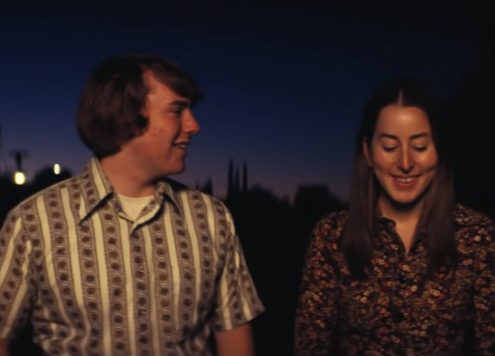
Apparently, he's a race car driver as well.
My taste in films isn’t quite as erudite as some of my peers will tell you. I enjoyed Shia LeBeouf’s scrappy performance in Transformers, Van Wilder will forever make me laugh (or really Ryan Reynolds in anything), and I think Wes Anderson films are a modern triumph of storytelling and visual aesthetic.
Sure I enjoy the “good” films as well, but in general, I like movies. Stuff you can watch that’s enjoyable and helps pass the time so that our higher-evolved consciousness doesn’t pre-occupy itself with meditating on the fact that we as a species evolved past our prime directive to mate and multiply and have actually become a sort of virus on the face of the planet. Boy, let me tell you, Amanda Bynes really cracks me up every time I catch the last half of What a Girl Wants on basic cable.
But let’s back up a minute. I want to take us back to the Wes Anderson films. I have yet to still see Fantastic Mr. Fox, but that movie aside, I think his filmography is a great sample set of how modern day film can transcend boundaries.
When you sit down at night to watch a breezy comedy with a box of pizza, your spouse, and dog what do you grab for? Most folks would say “Fletch!” or “The Proposal!” (another great turn by Ryan Reynolds). Anderson’s films rarely work their way into that conversation, but re-watch A Life Aquatic and then try and tell me that you’re not laughing your ass off half the time.
Modern day “indie” (in aesthetic, not production costs) films are obsessed with over-dramatic content and non-conventional American cinema pacing. You can look at the giants of the genre: the Coens rarely have comedic relief in their dramas, or high drama in their comedies; Kaufman’s films are more concerned with manipulating the story arc; Baumbach, Mottola, Coppolas, Apatow, etc. — there isn’t a balance. One element is introduced to heighten the impact of the other.
Anderson really does have a great grasp of both aspects of storytelling, and he’s not afraid to mix them. A crazed Owen Wilson on drugs crashing his car into the dog in The Royal Tenenbaums. You’re laughing, but you know the deep hurt it causes the boys in the film. Bill Murray on the diving board with scotch and a cigarette in Rushmore. It’s a hilarious scene played out by his complete and absolute misery.
The line is blurred. And because of that (and Anderson’s brilliant mise en scene), his films are forever re-watchable. You can criticize his films any way you want to, film professor, but sometimes I just want a good laugh. Or cry. Or I want to see how many corduroy blazers can fit on a screen at one time. And no movies do that to me as well as Anderson’s movies.
Gray Area Score: Dusty Snow










Social Media